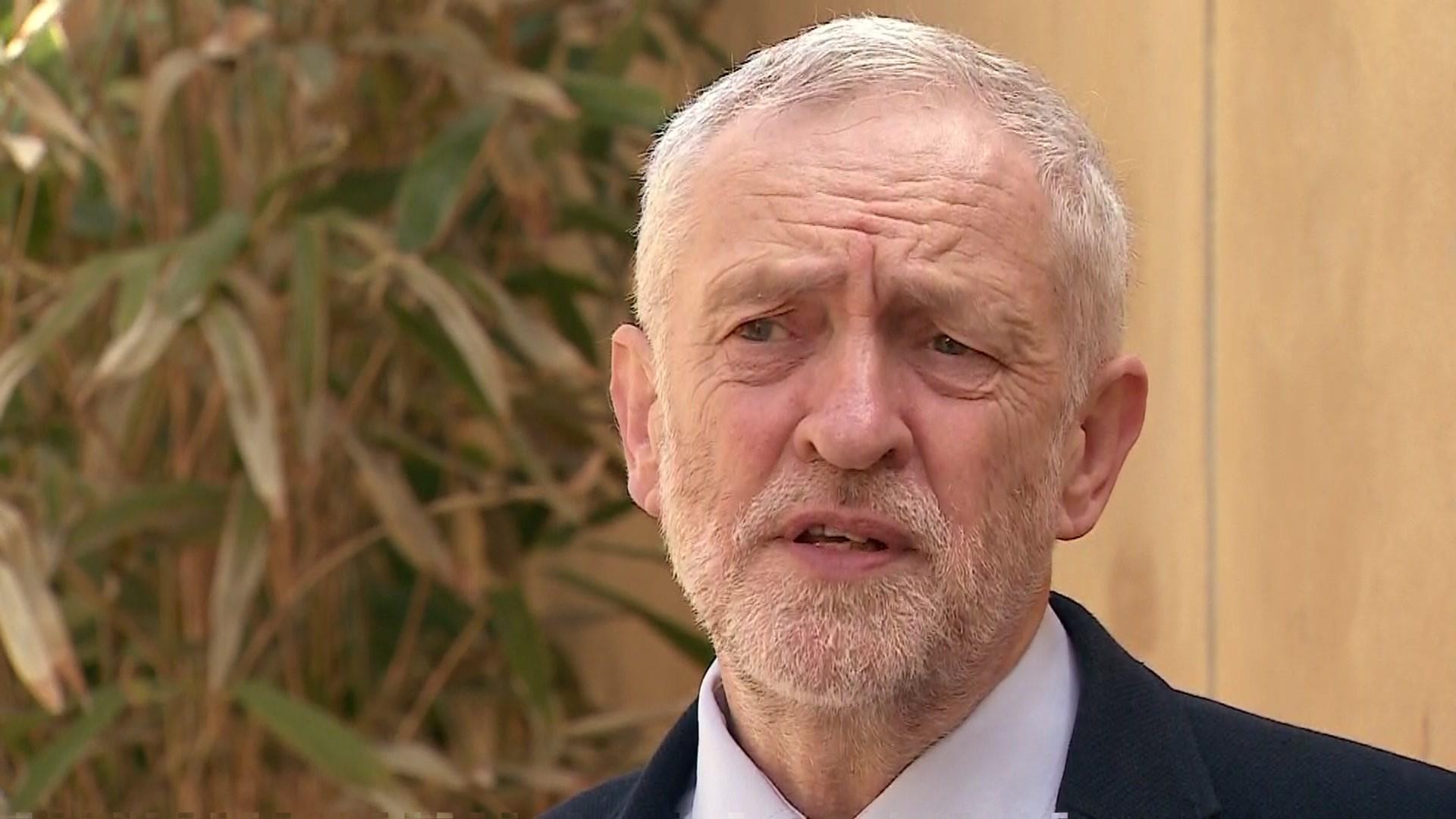Will the UK do the US's bidding on Syria?
- Published
Foreign Secretary Boris Johnson tells Today the UK could help the US respond to a chemical attack in Syria
Britain has long been as much a military ally of the United States as a diplomatic one.
Margaret Thatcher allowed Ronald Reagan to use UK airbases to strike Libyan targets in 1986.
John Major sent British forces to join the US-led coalition expelling Saddam Hussein's forces from Kuwait in 1991.
And more than a decade later, Tony Blair embarked on George Bush's military adventure in Iraq.
So it might not seem surprising for Boris Johnson to tell the BBC's Today programme that if President Trump asked for British military support against the Syrian government, it would be hard to say, "No."
He was being asked how the UK might respond if the United States launched another attack on Syrian government targets.
Earlier this month, the US launched 59 cruise missiles in an attack on an airbase that both the US and the UK claimed had been used to mount a sarin-gas attack on civilians in rebel-held areas in Syria.
The Pentagon has released video of missiles being launched from US Navy ships, targeted at a Syrian airfield.
This is what the foreign secretary told Today: "It would be very difficult if the US has a proposal to have some sort of action in response to a chemical weapon attack, and if they come to us and ask us for our support - whether it's with submarine-based cruise missiles in the Mediterranean or whatever it happens to be, as was the case back in 2013 - in my view and I know this is also the view of the PM, it would be very difficult for us to say, 'No.'"
'Reasonable request'
And to emphasise the point, he added: "If the Americans were once again to be forced by the actions of the Assad regime - and don't forget it was Assad who unleashed murder upon his own citizens with weapons that were banned almost 100 years ago - if the Americans choose to act again, and they ask us to help, as I said, I think it would be very difficult to say, 'No.'"
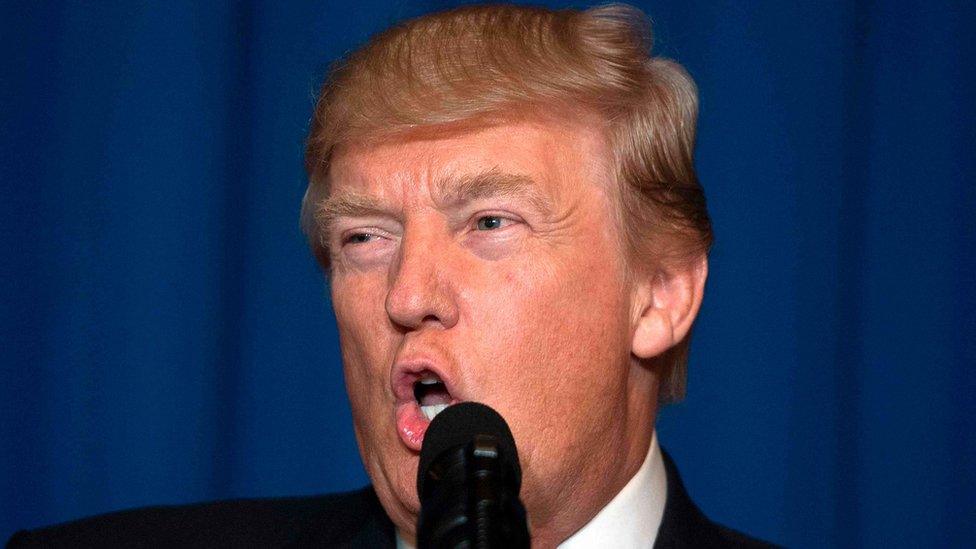
Donald Trump had previously rejected calls for further US military intervention in Syria
In fact, Mr Johnson has said this before.
Last Tuesday he told the House of Commons: "It is my belief - I stress that no such decision has yet been taken - that were such a request to be made in future and were it to be a reasonable request in pursuit of similar objectives, it would be very difficult for the United Kingdom to say, 'No.'"
Yet no-one noticed Mr Johnson saying this, because a few hours earlier Theresa May had announced her intention to hold a general election, and attention was elsewhere.
However, Mr Johnson's remarks are significant for several reasons.
He has made explicit what previously was implicit.
Sometimes in diplomacy it matters if politicians say things publicly into a microphone.
And we now have it on the record that the UK is willing in principle to attack Syrian government targets at the behest of the United States.
And this is not just his view: he said it was the prime minister's view too.
Parliamentary veto?
This is a departure because until now overt UK military action in Syria has been focused on attacking the so-called Islamic State group.
MPs voted to allow this, after a debate in December 2015.
Since then, the Ministry of Defence says, UK warplanes operating out of Cyprus have carried out 90 air strikes against IS targets.
There have been many other sorties over Syria in which UK aircraft and drones have gathered intelligence.
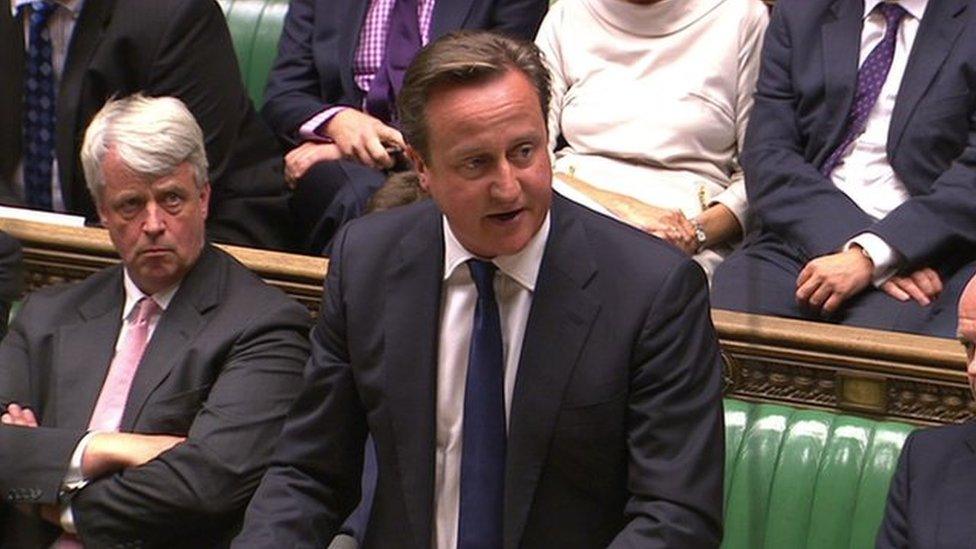
In 2013, then Prime Minister David Cameron said he accepted there could be no military action without parliamentary support
Mr Johnson also made clear that the government may not necessarily consult Parliament before joining in any US military action.
Asked if the decision would have to go before the Commons, Mr Johnson replied: "I think that needs to be tested."
Pressed on whether going to the House of Commons would be a necessary precondition, Mr Johnson replied: "I think it would be very difficult for us to say, 'No.'
"How exactly we were able to implement that would be for the government, for the prime minister, to decide."
This is controversial for several reasons.
Wriggle room?
This reinforced a convention - not a legal requirement - that the government must seek parliamentary approval before ordering military action, except in emergencies.
And secondly, as of next week, there will be no MPs for the government to consult, after Parliament is dissolved ahead of the UK general election.
So, Mr Johnson has clearly allowed for the possibility of military action during the campaign, without parliamentary consultation.
Sources close to the foreign secretary insisted that he was not ruling out a parliamentary vote and that the government's position had not changed.
But note Mr Johnson's qualifications.
He was very careful about spelling out the conditions in which the UK might help.
He is talking about UK military action only after a similar chemical weapons attack and only if it were a "reasonable request" in pursuit of similar objectives.
In other interviews on Thursday morning, Mr Johnson talked about military action that was "commensurate and appropriate and timely".
So this is no blank cheque.
The foreign secretary has given himself plenty of wriggle room.
- Published27 April 2017
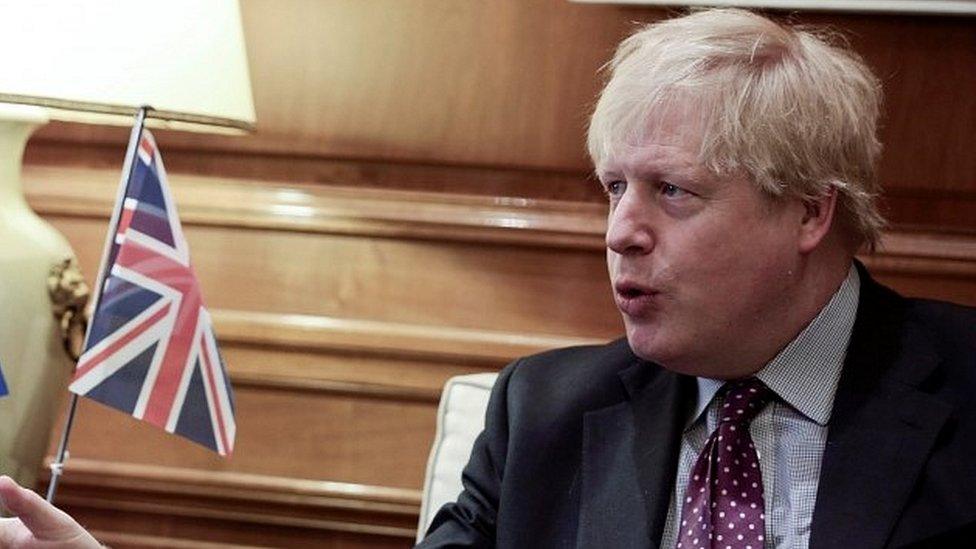
- Published7 April 2017
- Published7 April 2017
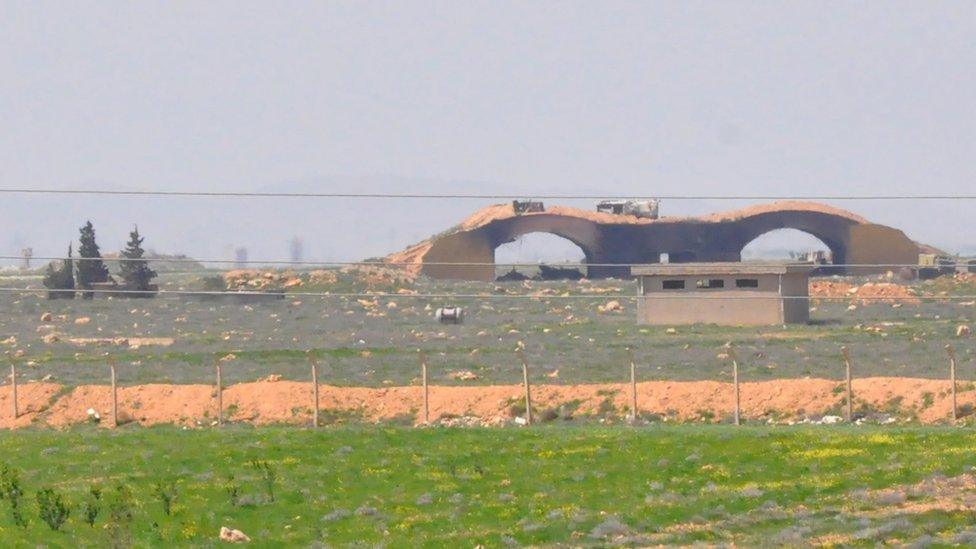
- Published7 April 2017
